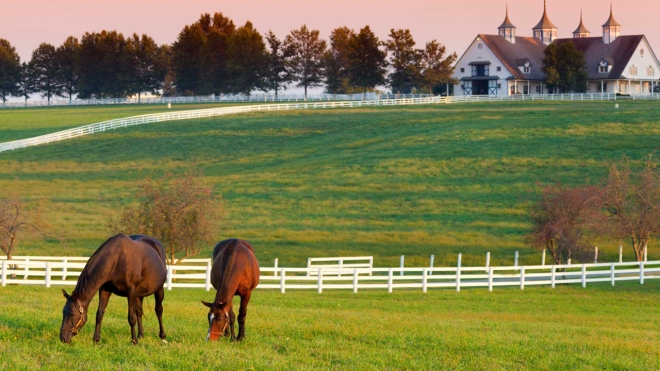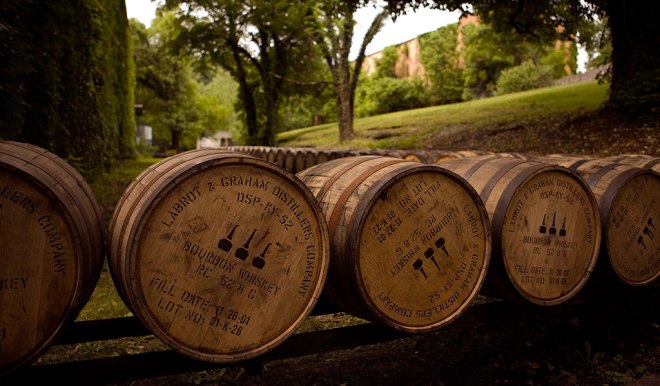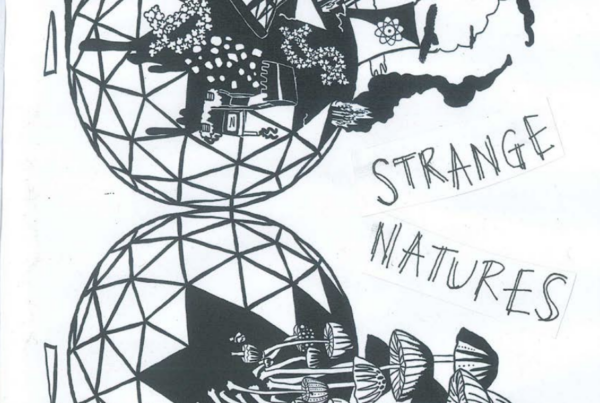Reflections from the Dimensions of Political Ecology (DOPE) conference, one of the biggest annual gatherings in the field.
This February, six of us from the ENTITLE network presented our work at the DOPE (Dimensions of Political Ecology) conference held at Kentucky University, Lexington. Creighton Connolly and myself organised a session on “Perceptions of Urban Environmental Health: Narrating Political Ecologies of Disease”, where eight panellists presented topics that ranged from perceptions on autism, homelessness, human waste and hygiene, to concepts of politicisation, agential realism and empowerment.
Assisting and enriching our panel conversations, were two invited discussants: Prof. Richard Schein and Dr. Jake Kosek. After three days of stimulating conference talks and interactions, my thoughts gather particularly around the contributions that they made, not only to our panel but also to the wider DOPE event.
Constructed landscapes and historical reminders
Professor Richard Schein is a cultural and historical geographer at the University of Kentucky. He is also a bourbon expert. During our tour to a distillery about 25 km northwest of Lexington, Prof. Schein shared some stories of rural transformation in this part of the Appalachian landscape. As soon as the bus crossed the city borders, the view from the foggy windows emptied. No more industry, no tall buildings, not many cars, no people. Soon between the snow and the naked trees, there were farmhouses on smoothly curved, fenced hills. In spring, these hills are covered with the famous blue grass, from which the American roots/country music got its name (though, if you ask me, it’s the African-American jazz influence that gave bluegrass its soul).

White fences, smooth hills and bred horses surrounding the modern farmhouses of Lexington, Kentucky. Source: http://kyfarmhousetouchscreen.com/
Buying racehorses is a game only for the super-rich. Nevertheless, these horses have become a regional trademark. Despite the little direct material benefit they bring to local societies, they stand as symbols of aristocracy, attract tourism and have become part of the local cultural identity. Their controlled reproduction is feeding a speculation economy that is built on race-winning expectations. Bourbon is another product of local pride, for which the region is widely known. As the guide of the visited distillery repeats, what makes Lexington horses strong is the naturally filtered limestone water coming from its aquifers. It is the same water that gives Kentucky bourbon its unique taste, together with the white oak wood that makes its one-use barrels.

Barrels of what is know as “America’s Native Spirit”, bourbon whiskey, waiting to be brought to their national and international destinations. Source: http://www.woodfordreserve.com/wp-content/uploads/2014/03/Maps3.jpg
“Governing Nature” and a missing approach
Thinking about the historical context of the region, and a couple of bourbon shots later, I find myself in the conference’s plenary talk event. During that evening, among others, renowned geographer Jake Kosek (University of California, Berkley) presented his thoughts on the topic of “Governing Nature”. Through his insightful study on honeybees, Dr. Kosek pointed to a particular aspect that political ecology has yet to grapple with when troubling nature.
Political ecologists have traditionally seen nature as a product of governance, of the institutional state and of capital domination. As such, it is also being understood as an object that is being struggled over. Moreover, attention has been paid to the politics of human interventions that are remaking nature. While this remaking attributes to nature certain human animacy, it is still seen, mainly, as a resource. Lastly, he stresses, we see nature through the eyes of governmentality (the conduct of conduct, or «conduire des conduites» as Michel Foucault defined the exercise of power by governments and by people themselves), where nature is being governed as constitutive of subjectivity. Nature is being bound up with knowledge production, where the institution might not entirely be spelled out. But again, nature and culture remain somehow separated.
Presenting his work, “Ecologies of Empire: On the New Uses of the Honeybee”, Kosek asks us: How can we move away from politics focused only on humans and see the ‘economic’ as ‘being’? How can we see the social contract as an inter-species story?
Honeybees in the United States are declining in high rates (a sign of major environmental imbalance) but their overall numbers have not dropped. This paradox is explained through the intensive management techniques now applied by beekeepers. Intensive agriculture relies on the work of pollination bees, so “we simply will not let them die”, says Kosek, “they are too important to us”. Apart from this interest-driven human domination on, and transformation of, the bees, Kosek focuses on how their ecology has entered human imagination and motivated action.
Ancient and modern war practices find their roots in beehives and bee movement and organisation. The word ‘bomb’ comes from the Greek ‘vomvos’; a noise assigned to bee swarms. Military drones get their name from the male drone-bees. Their life cycles and behaviours are similar in many ways: they have a single purpose, cannot be distracted and are sacrificed for the mission. “Much more is at stake here than the bee dying”, Kosek explains. “There is a notion of human nature through this inter-species relationship that is not (only) a dialectic one”.

The three castes of honey bee in a colony or hive: the queen, the workers, and the drones. Source: http://gardentoursnewengland.com/blog/
How can these ideas feed into the work presented and the discussions we had on health perceptions?
Panelists, Ilenia Iengo and Marco Armiero, spoke of political action and resistance against waste disposal by people using their own bodies to tell their stories of disease. Giacomo D’Alisa and his colleagues, discussed how individuals perceive their status of (un)healthy exposure and in turn connect to environmental organisations in order to defend their right to healthy livelihoods. Understanding bodies as altered landscapes, we can see in these cases the production of knowledge that is contradicting dominant discourses about how and why this alteration occurred. Reminded by Prof. Schein, taking a position in a post-political age by telling the stories that need to be told, is something which research on health perceptions, practices and experiences can and should allow.
The work I presented on diarrhoea, pointed to how certain health-related household behaviours have been moralised, stigmatising disease along lines of gender and class and, ultimately, disabling people from taking control over what affects their health. Panelist Sohel Ahmed, looked also at how knowledge on the nexus of health-environment-society is dominated by state authorities, marginalising small food-stall owners instead of empowering communities to improve their food safety. Looking at such meanings that are assigned to disease and at social norms that are historically produced as reflections of bodily reactions, we may understand the mediating role of human (and non-human) bodies. At the same time, as Dr. Kosek commented, disease is not always to be seen as something external. The case of autism, as presented by Catherine Jampel, punctuated exactly how some conditions that are historically characterised as “not normal” and thus sick, can be rather seen as part of a different self.
Feelings of disgust and perceptions of public health, blended with municipal political economics and rooted environmental justice concerns, shaped the journey of faecal material in Arkansas, Mississippi and Louisiana, which Graham Mooney described. Similarly, Creighton Connolly exposed the different motives in the claims around disease, used to defend or criticise the presence of swiflet birds in urban environments. Jeff Rose, on the other hand, spoke of public health concerns that were claimed in order to “sanitise” a public municipal park by displacing people who had found a home in this “natural” environment. Examining the ecologies of animals, pathogens, peoples and environments that are being considered as “natural” or “sick”, we might discover pathogeneses of governance and epidemiologies of (dis)empowering discourse.
As both discussants pointed, the history of health knowledge production and the politics of causality in health discourse, are central issues that political ecology needs to examine. Following up these problematisations and the questions that arose from them, we hope to bring these papers together in an upcoming special issue. We will keep you posted!






One Comment